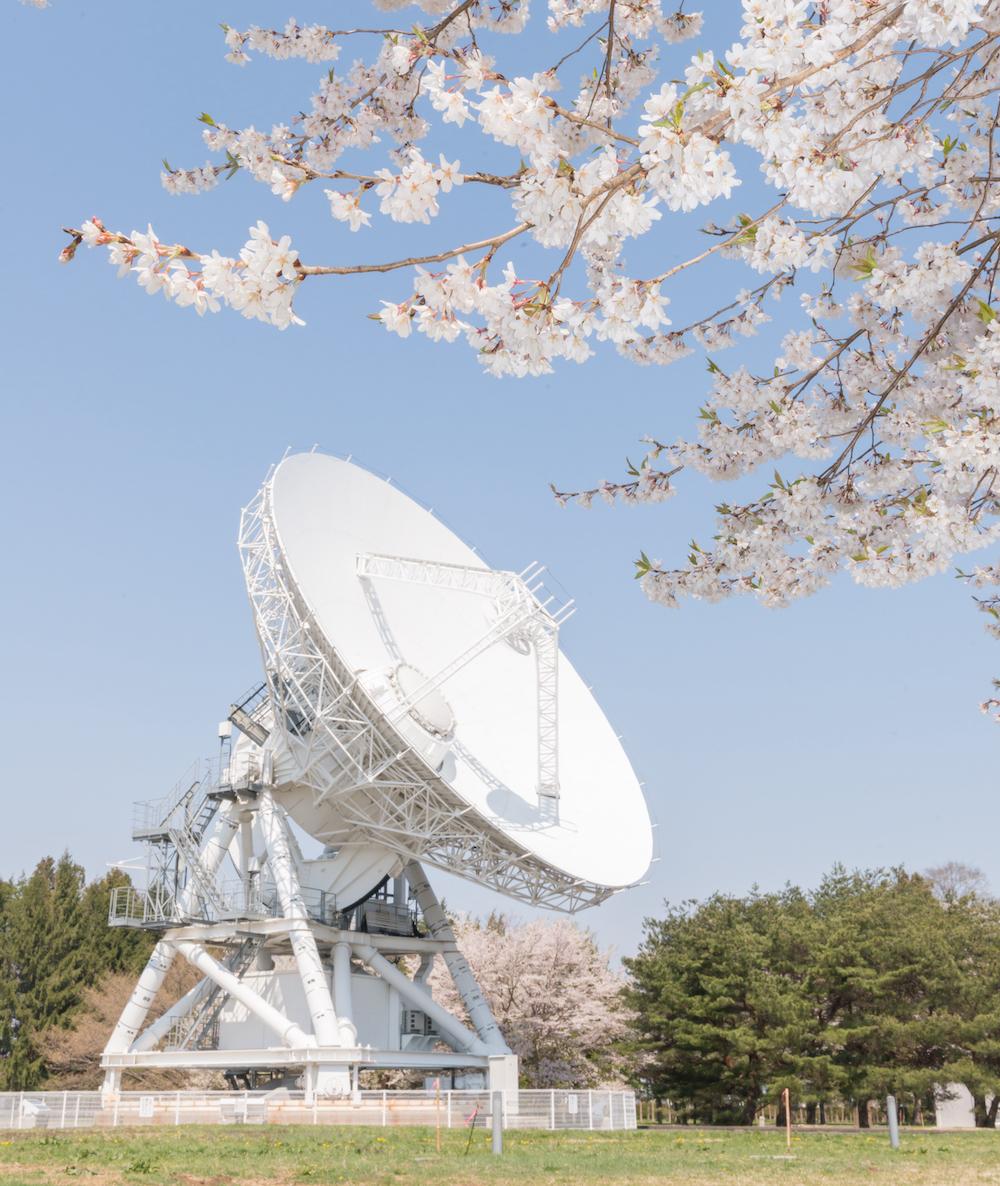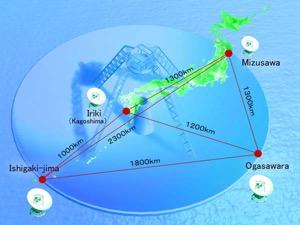Japan

At a glance
- Japanese astronomers are represented on all 14 SKAO Science Working Groups.
- In 2025 the NAOJ and the SKAO signed a memorandum of understanding to create opportunities for Japanese researchers to support the assembly, integration and verification activities of the SKA telescopes.
- Japan is home to the VLBI Exploration of Radio Astrometry (VERA) array, an SKA pathfinder telescope.
National involvement
The Japanese SKA consortium was established in May 2008 as the organisation that leads the more than 270 scientists and engineers participating in SKA-related work in Japan, and has an observer on the SKAO Council.
Japan has been involved in the Assembly, Integration, & Verification (AIV) activities of the SKA telescopes since 2022. A new memorandum of understanding between the SKAO and NAOJ, signed in July 2025, outlines the intent of the NAOJ to create at least three full-time equivalent positions to support both SKA-Low and SKA-Mid system AIV activities. AIV teams verify that the systems meet the specified requirements and design before they are made available to the science commissioning teams.
Science interests
Japanese astronomers are involved in all 14 SKAO Science Working Groups, and the community has a particular interest in the Epoch of Reionisation, magnetism, and pulsars. In 2020, the 453-page Japanese SKA Science Book was published, and the consortium is also supporting sending young people to SKA-related countries to conduct joint research.
Japanese SKA consortium members are working with Mizusawa VLBI Observatory, which operates the VERA telescope, and these skills in all aspects of VLBI science and its techniques will contribute to potential VLBI studies with the SKA telescopes.
Wider impact
The Mizusawa VLBI observatory, which operates the SKA pathfinder telescope VERA, has been working on the development of a fast analogue-to-digital converter, which can sample analogue data up to the frequency of 50 GHz. The converter allows for high-speed data recording which may be useful for other radio telescopes, including the SKA telescopes.

Contact
- Hideyuki Kobayashi Professor, SKA1 study group, National Astronomical Observatory of Japan
- Hiroyuki Nakanishi Associate professor, Japan SKA consortium, Kagoshima University




